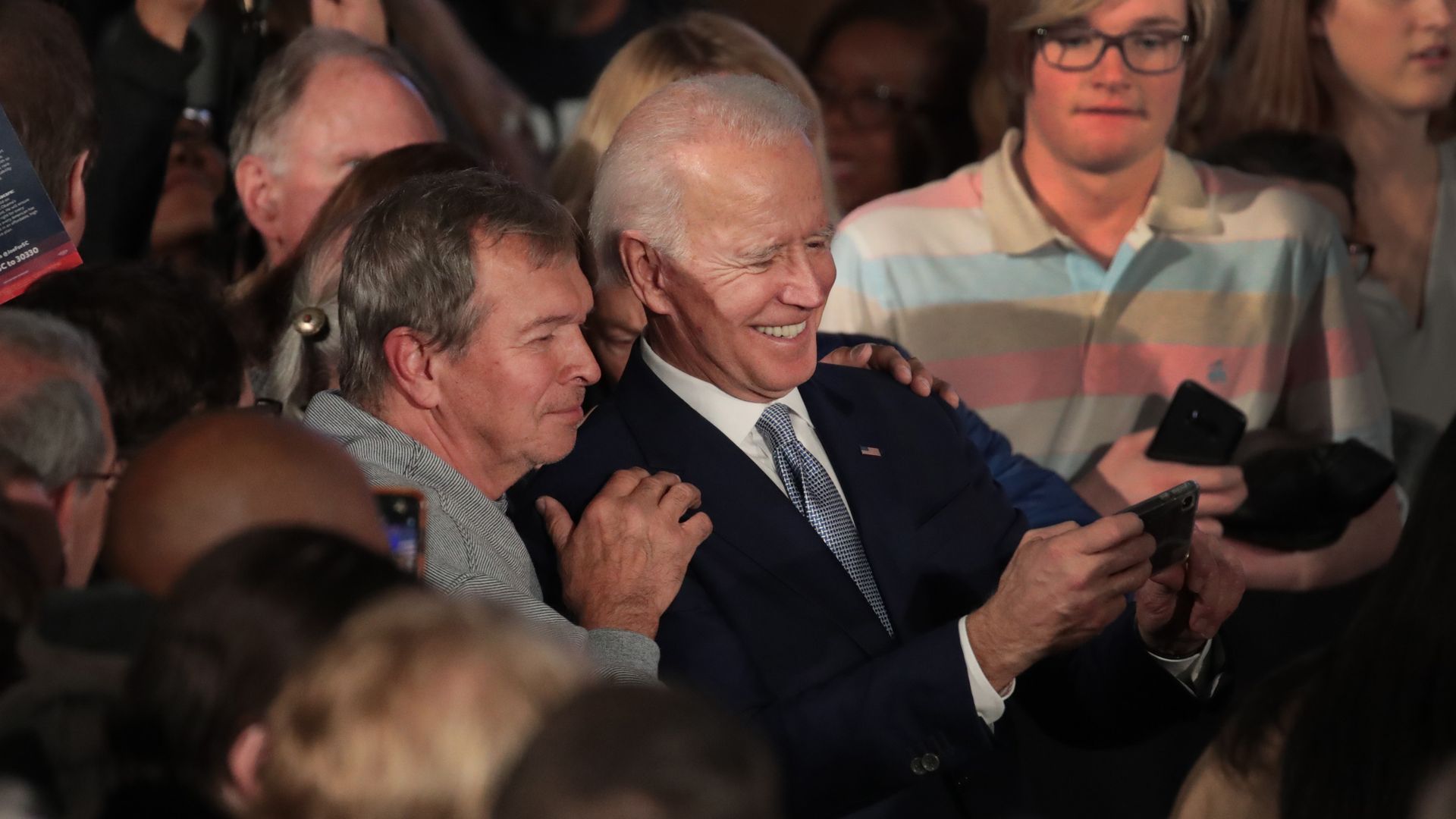Inside Biden's big win
Add Axios as your preferred source to
see more of our stories on Google.

Biden celebrates with his supporters after declaring victory at an election-night rally at the University of South Carolina. Photo: Scott Olson/Getty Images
Editor's note: Snapchat's Peter Hamby, host of "Good Luck America," sent Axios this dispatch from Biden's victory party in Columbia, S.C.
Joe Biden can now make the case he's got a coalition: black voters, older voters and the type of never-Trump, Romney-Clinton suburban independents who were so crucial to Democratic House wins in 2018.
Driving the news: 7 pm ET, when the race was called, was the Biden campaign’s biggest hour of online fundraising to date. The campaign's digital director, Rob Flaherty, tweeted that the campaign’s “No Malarkey” mugs sold out in two hours.
- On Sunday morning, Biden announced that the campaign has raised more than $5 million in the last 24 hours.
Why it matters: Biden desperately needs the money and earned-media bump before Super Tuesday. He’s up with only $2 million in TV advertising in seven Super Tuesday states — Alabama, Arkansas, Georgia, North Carolina, Tennessee, Texas and Virginia — targeting majority-black congressional districts where he can bank delegates.
- A week of TV ads in Los Angeles alone can cost $3 million.
The intrigue: One buzzy question flying around the room at Biden’s victory event was whether, if this becomes a two-man race between Biden and Bernie Sanders, would Barack Obama get off the sidelines for his vice president?
- Between the lines: Plenty of Democrats here say that last week's news coverage of Sanders' history of warm comments about communist regimes spooked moderates and clarified their choice.
By the numbers: The South Carolina electorate was 5% whiter than it was in 2016 — something Snapchat's Peter Hamby had predicted — but these weren't Bernie-voters.
- They were swing-y suburban moderates — affluent college-educated whites — who live across the border from Charlotte and along the coast, and who've flocked to the Democratic Party since Trump’s election.
- Independents made up 10% more of the electorate than in 2016, and moderate/conservative turnout was 5% higher.
- There were more first-time primary voters than in 2016, and Biden won them by 7 points, undercutting Sanders' argument he's the one who can expand the electorate.
- Exit polling put 61% of the African American vote with Biden, with Sanders at 17%, per the WashPost.
As in Iowa, with precincts outside Des Moines, the surge in the Democratic primary was from suburban whites, much like the 2018 midterms.
- Absentee ballot data showed white, Democratic turnout in South Carolina more than doubled from 2016, while African American turnout stayed flat.


